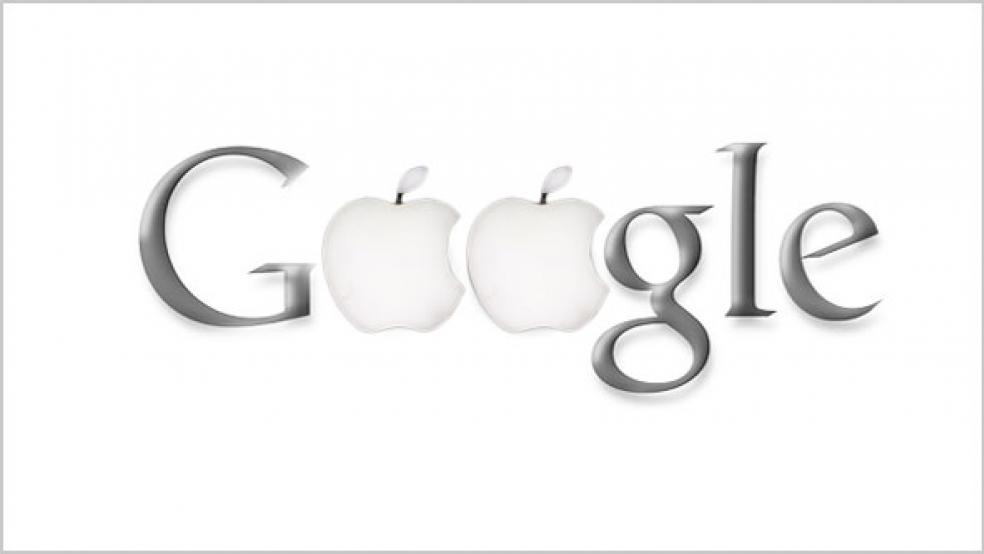Everyone seems to have an idea about what Apple (NASDAQ: AAPL) can do to reverse the decline in its profit margins, growth rate and stock price. It could buy BlackBerry (NASDAQ: BBRY), or Netflix (NASDAQ: NFLX), or Comcast (NASDAQ: CMCSA) or some other large company that would transform or reinvigorate its business model in some way. (Forget for a moment that most mergers never achieve their stated objectives, and that this hasn’t been the way that Apple has reinvented itself in the past.) It can mark down its prices, so that the costly iPhones appeal to more consumers, from the pay-as-you-go mobile phone users here to the more cash-strapped yet still aspirational middle class in countries like China. (CEO Tim Cook has publicly rejected this idea.)
In the absence of any significant news out of Apple about what the company does plan to do, there is a second Great Rotation underway in the financial markets – not the widely questioned one from bonds to stocks, but the now verifiable one from Apple to Google (NASDAQ: GOOG). Over the last six months, as Apple’s stock has plunged 35 percent and forfeited its status as market darling, Google’s has rallied 18.8 percent. The result? A report from Citigroup’s chief U.S. equity strategist, Tobias Levkovich, says that its survey of the stock holdings of the 50 largest actively managed U.S. mutual funds suggests that Google is now the most widely held stock, displacing Apple. The same, the report says, is true among hedge funds.
Google is a logical heir to Apple’s market role, even though the company doesn’t have quite the same cult status. Sure, Google doesn’t make stylish and sought-after electronic gizmos (although it hopes to make inroads into that business, too, with the Chromebook and through its Motorola Mobility smartphones). It just dominates Internet search and advertising – and makes it easier, arguably, for the rest of us to use the non-Apple gizmos that we own, thanks to its Android operating system.
That has kept its growth pattern relatively intact: Revenue growth is actually increasing, to 32 percent in 2012 from 24 percent in 2010. Google reported that its average cost per click, a key metric, fell 6 percent in the fourth quarter over the same period the previous year – allaying fears that the slide would be worse. True, the acquisition of the Motorola business has proved to be a drag on its earnings, but there could be some long-term upside there as well. And Google occupies a similar kind of space to Apple in the minds of investors – a large technology company that makes money from the kind of trends that dominate the ways that consumers use technology in the early 21st century: mobile Internet and the “cloud.” Fortune reported last week that Google will launch a subscription YouTube music service later this year – similar to the streaming iTunes service Apple is reportedly preparing. The big difference, however, isn’t just that Google’s growth trajectory looks more compelling. Rather, Google has been more outspoken and public about what it is doing in pursuit of that growth instead of hugging its plans close to its chest.
Recently, Google co-founder Sergey Brin demonstrated “Google Glass” to the TED2013 conference, showing the crowd how the “augmented-reality” glasses will work. Google’s self-driving cars, still a curiosity even to techies, could represent a massive change in the auto industry. Google is innovating – and its innovations aren’t confined to those willing to pay a premium price for its physical products. You can use Gmail, access it from pretty much any web-connected device you can imagine, and enable Google to profit from the ads you see alongside your mail.
The buzz surrounding Google’s basic products and its innovations like Glass is powerful, even if it doesn’t quite match the one that surrounded the first iPad and the first iPhone. Now that the luster surrounding Apple’s products has diminished, though, and the growth rate is slumping, there’s not much left to talk about beyond grousing about the declining share price and what the company should do with its cash mountain. The iWatch and Apple TV are just rumors, after all, so investors eager for a catalyst to boost the stock price are still waiting.
Apple CEO Cook acknowledges all the criticism. “I don’t like it either,” he told investors at the company’s annual meeting. “The board doesn’t like it. The management team doesn’t like it.” At the same time, the lack of anything more than speculation and rumor about new products is an active disadvantage for Apple right now; “just trust me” might have worked for Steve Jobs, or in an earlier stage of Apple’s push into the iPhone universe, but not at this point in time.
That’s not to suggest that Google can’t stumble, too. The Chromebook hasn’t been a slam dunk success, for instance. But the company has enough else going on that a disappointment on one front matters less. And at this point, “just trust me” is working for the Google Guys in a way that Tim Cook can only contemplate wistfully.



